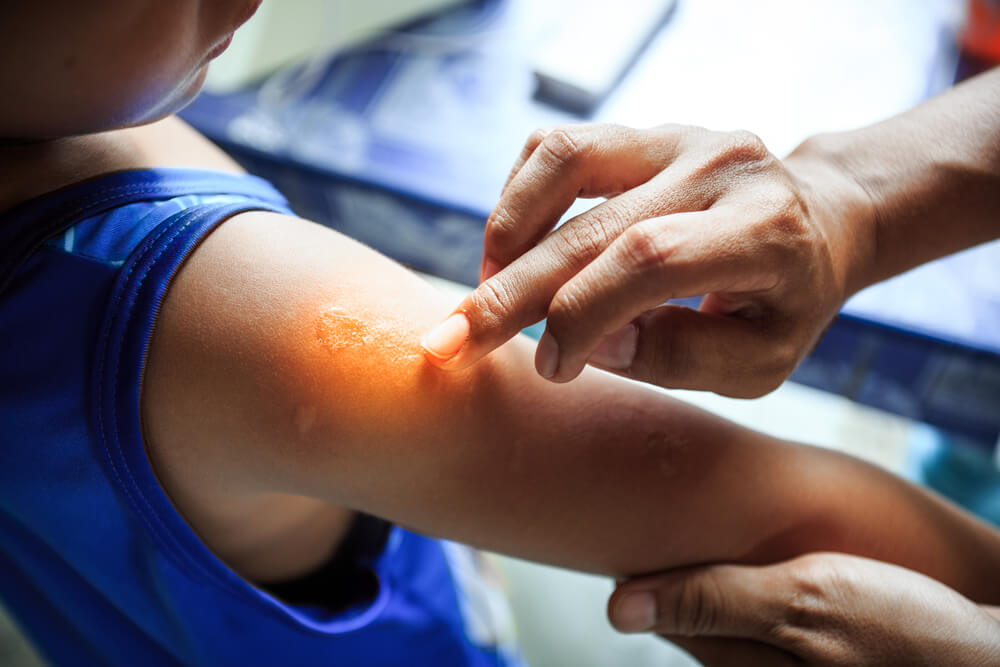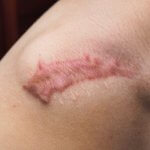Stem cells derived from adipose tissue could play a crucial role in treating atopic dermatitis, which is more commonly known as eczema.
Scientists in Korea have successfully used exosomes in these stem cells to ameliorate symptoms of the skin condition, which affects up to 15 million people in the UK.
What is atopic dermatitis?
Atopic dermatitis, also known as eczema, is a chronic or relapsing inflammatory skin disease resulting in dry, crusty and itchy red skin. The condition is associated with elevated immunoglobin levels and sensitisation to a variety of different allergens.
It is caused by dysfunctional regulation of the skin’s immune system due to genetic and environmental factors.
How is atopic dermatitis currently treated?
Current treatments generally focus on suppressing the immune system with drugs, but these can have a negative impact in the long-term. Patients are often prescribed with topical steroid cream but these can have damaging effects.
What did the trial involve?
The trial sought to relieve atopic dermatitis by using mesenchymal stem cell-derived exosomes.
In the trial, mice were administered with varying doses of exosomes – either intravenously or subcutaneously for three times a week, over a four-week period.
What are exosomes?
Exosomes are a type of nanovesicle, a kind of liquid sac inside a cell that transports materials from one place to another. Exosomes can very easily circulate through the body to reach injury sites. They are non-toxic, even with repeated administration.
What were the results?
Researchers found that ASC exosomes reduced pathological symptoms of atopic dermatitis, such as immunoglobin levels and the number of eosinophils in the blood, without affecting overall white blood cell count. Eosinophils are disease-fighting white cells.
The stem cells also reduced the infiltration of mast cells, which release the histamine and other substances during inflammatory or allergic responses that can manifest s dermatitis.
Finally, these stem cells reduced tumour necrosis factor alpha – which are cell-signalling proteins (cytokines) that cause systemic inflammation.
How can stem cells treat eczema?
There are eight clinical trials studying the impact of stem cells on eczema.
Previous studies have indicated that MSCs derived from cord blood could suppress allergic progress in atopic dermatitis. They have the ability to interact with cell types of both innate and adaptive immune systems, which results in the differentiation and activation of immune cells – including T Cells, B Cells, dendritic cells, and natural killer cells.
However, there are issues to explore – such as improving their poor engraftment efficiency, unwanted immune response, potential tumour formation, and shorter half-life.
A promising clinical trial at Seoul St Mary’s Hospital, Korea – in association with Seoul National University – saw great results by inserting umbilical cord mesenchymal stem cells subcutaneously.
55% of patients saw a 50% reduction on the Eczema Area and Severity Index (EASI) and a 50% reduction in SCORAD (Severity Scoring for Atopic Dermatitis). Those who received higher doses also experienced a 50% reduction in itchiness.
Future treatments
Exosomes derived from stem cells could be a promising alternative therapy as they can ameliorate atopic dermatitis-type symptoms by regulating inflammatory responses. In this case, stem cells were extracted from adipose (ASCs) but can also be found in the umbilical cord.
Request a Welcome Pack
Find out more about cord blood banking by downloading a Welcome Pack now.









